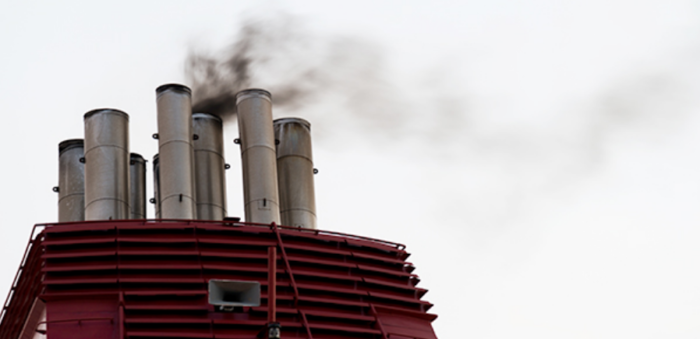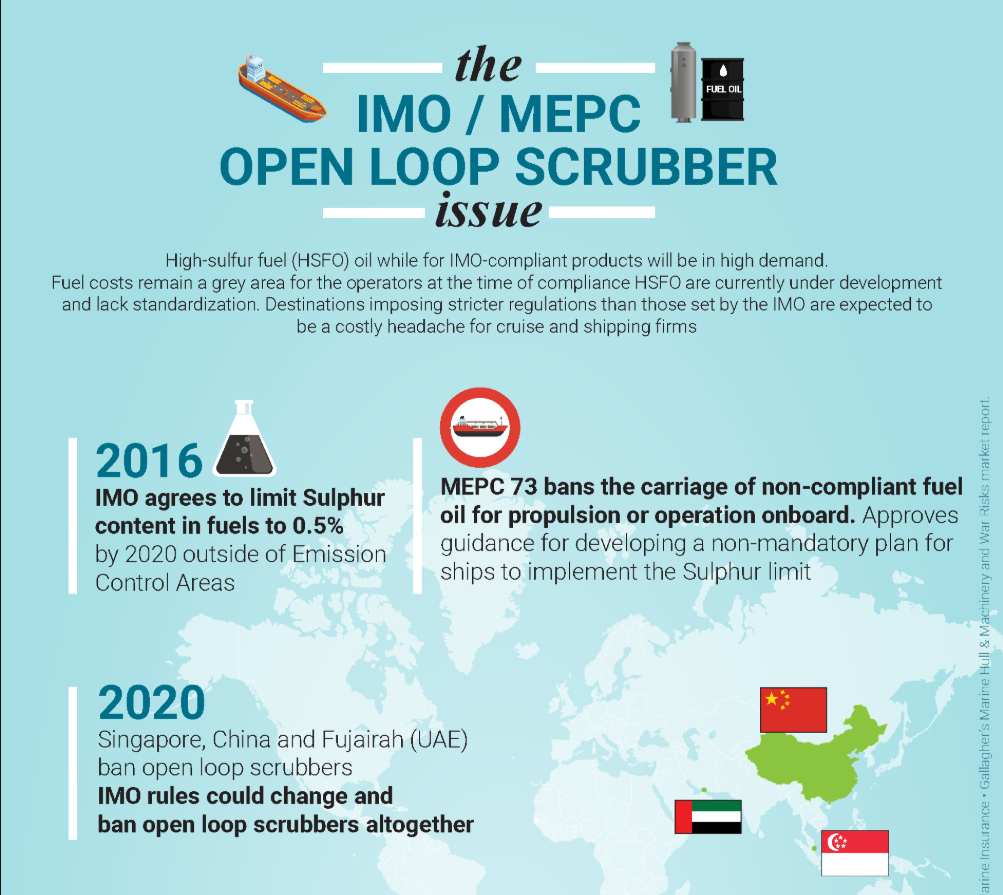The American Hellenic Hull Insurance Agency published an infographic focusing on the IMO/MEPC open look scrubber issue, focusing on MEPC 74 that was conducted the previous week and focused on key environmental issues that push the shipping sector. The infographic provides information on the IMO’s decision in 2016 in reducing sulphur emissions and highlights what effects do scrubbers have from the insurer’s perspective.
For full view, click on the infographic.
The Inforgraphic focuses to the fact that destinations imposing stricter regulations that those set by IMO are expected to be a costly headache for cruise and shipping firms.
Mainly, in 2016 IMO agreed on limiting sulphur content in fuels to 0.5%. Thus, MEPC 73 bans the carriage of non-compliant fuel oil for propulsion or operation onboard. In the meantime, MEPC approves guidance for developing a non mandatory plan for vessels to implement the sulphur limit.
In 2020 Singapore, China and Port of Fujairah announce that they ban open loop scrubbers.
In light of IMO’s sulphur cap, underwriters can’t do anything proactive, meaning that they totally rely on port state control and classification societies in order to verify owners compliance.
Yet, in the possibility that a vessel fails to comply with regulations, it may face flag state breach, loss of MARPOL certificate and may result to breach of warranty.
According to the infographic the majority of H&M contracts include a classification warranty requiring vessels to remain in class for the duration of the period of cover.
In the meantime, installation of scrubbers will increase dramatically the insured values. Also, the cost of maintenance is unknown and there’s no adequate crew training due to the fact that there’s not much experience on the market.
Therefore, underwriters should consider:
- Management experience;
- Claim activity;
- Vessel type and particulars;
- Flag and Class;
- Maintenance cost;
- Crew training;
- Loss prevention.
Concluding, interested parties should expect to see claims arising in Hull and Machinery policies due to:
- Damage to filters, purifiers and engines;
- Hull damage from groundings or collisions as a consequence of loss power/blackouts;
- Claims for salvage assistance;
- General average.































































